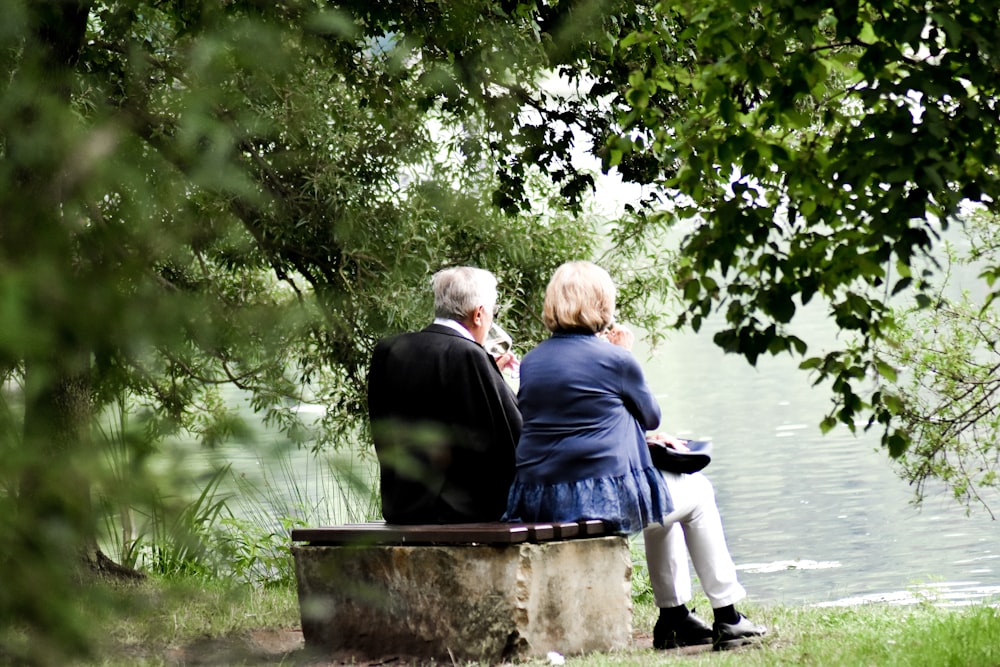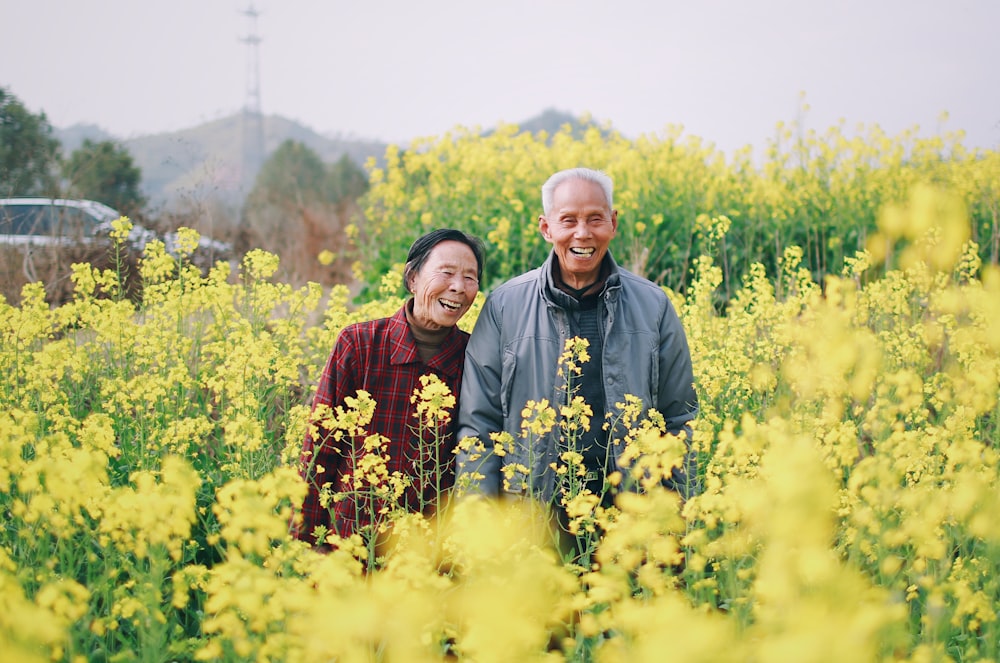
Many individuals wonder what will happen to their sex lives as they get older. Will they still be interested in having sex? Will sex continue to be as pleasurable as it was when they were younger? How does the body change with regards to sexual function, as it gets older? While there are some changes in the sexual response cycle associated with aging, there are many ways to maintain and enjoy an active and healthy sex life at any age.
Table of Contents
Common Changes
As people get older, their sexual response cycle changes, but these changes do not necessarily impact the quality of one’s sex life in a negative way. Males and females have different changes to their sexual response cycles with age. For males, some changes may include a delay or inability to develop an erection, trouble achieving an orgasm, and a longer refractory period. For females, some changes may include lower vasocongestion, decreased natural lubrication, decreased vaginal elasticity, increased time needed for arousal, and less frequent or powerful orgasms. These changes are natural and vary from person to person. It is still very possible to enjoy a pleasurable sex life with such bodily changes by making simple alterations to one’s love life.
Changes in a Male’s Sexual Response Cycle During Aging
The Excitement Phase
With age, erections may take longer to develop; a younger male may be able to experience an erection in a matter of seconds, while some older males may need a prolonged period of more intense, effective physical stimulation to become erect. This is due to a decrease in testosterone, which begins in the mid-twenties as a gradual decline.
Some males may have trouble developing and maintaining an erection, which may be a sign of erectile dysfunction. There are psychological and physiological causes for erectile dysfunction, including neurological changes, vascular deficiencies, post-surgical effects, drug-related side effects, hormones, lifestyle choices, anxiety, stress, and depression, but there are also many treatments.3 Treatment options for a physiological cause may include the use of prescription medications or procedures to increase or imitate blood flow to the penis. Such treatments include Sildenafil (Viagra), external vacuum constriction devices, surgically inserted internal devices, intra-cavernously injections, intra-urethral therapy, and testosterone therapy. If erectile dysfunction occurs because of psychological reasons, there are ways to help treat and prevent it, like exercising, having a healthy diet, avoiding recreational drugs and smoking, communicating with your partner, creating a relaxed environment during sexual activity, and having safe sex on a regular basis.

The Plateau Phase
As males age, they may have “softer” erections due to less muscle tension (myotonia) than when they were younger. A complete erection may not occur until the end of the plateau phase, instead of at the beginning, after continuous stimulation. The testes may not elevate towards the body as much as they would have at a younger age. Older males may be able to stay in the plateau phase longer before they climax, in comparison to when they were younger, which may or may not enhance the overall pleasure.
The Orgasm Phase
There may be fewer contractions during orgasm than at a younger age, which could lead to a less “intense” orgasm. The pressure of ejaculation, and volume of semen may decrease with age.1 One advantage that older males tend to acquire is the increased ability to control their orgasm, which can lead to sex lasting a longer duration of sex.3
The Resolution Phase
Older male’s penises may return to their flaccid state and the testes may lower from the body at a faster rate than younger males. The refractory period increases with age, as the body needs more time to recover from such physical exertion. A male’s refractory period in his early 20s can be as short as 3-5 minutes, but as he ages, this refractory period lengthens with range of minutes to hours.2

Changes in a Female’s Sexual Response Cycle During Aging
The Excitement Phase
As females age, they experience a decrease in vasocongestion and natural lubrication. A lack of vasocongestion constricts the elasticity of the vagina upon arousal. The width and length of the vagina does not expand as much, which can make it more difficult to accommodate an erect penis, finger, or other object. Females who lack adequate lubrication may consider investing in a synthetic, water-based lubrication, such as KY Jelly, to reduce friction and increase overall pleasure during sexual activity. There are many different types of lubricants available, so individuals should try multiple to see which works best for them.
The Plateau Phase
For older females, it may take longer to become and stay aroused than when they were younger, as they may need more stimulation time and intensity.
The Orgasm Phase
There may be fewer muscle contractions during orgasm, which may result in a less “intense” orgasm. This is because the pubococcygeal (PC) muscle weakens with age, but can be strengthened with Kegel exercises. Kegel exercises consist of repeatedly tightening and releasing the muscle. The best way to begin these exercises is to locate the muscle by stopping urination midstream, as this targets the PC muscle. Then, tighten and hold these muscles for five seconds, then release for five seconds, and repeat. You can work up to longer periods of time with practice. These exercises can build stronger pelvic floor muscles, which in turn can increase sexual response, pleasure, and the likelihood of reaching orgasm.3 Orgasms may become less frequent as one ages, so more stimulation might be necessary to achieve orgasm.
The Resolution Phase
After orgasm, the body may take less time to return to an neutral state than for younger females, as it is more difficult for the body to maintain aroused after stimulation.
Menopause
Menopause describes the cessation of menstruation. It describes a two-year period, generally between the ages of 40 and 60, during which females experience the physical and biological changes that come with the cessation of their menstrual cycle. These changes are driven by a decrease in estrogen and progesterone levels, as well as the conclusion of the decension of eggs from the ovaries. Some females report experiencing physical “hot flashes,” during which their body feels exceptionally warmer than usual and may begin sweating. Many females experience osteoporosis, which is the degradation of bones due to the decline of estrogen levels. Hormonal therapy can ease the discomfort for females who cannot bear the side effects of menopause. This treatment usually includes a combination of estrogen and progesterone, and may also include testosterone. However, this treatment is relatively controversial, as there are both risks and benefits. Although there is a high chance that the treatment reduces the likelihood of developing osteroporosis, many females are put at a greater risk of heart attack, stroke, breast cancer, and blood clots.
Having intercourse during menopause can be difficult. However, many females continue to enjoy sex both before and during menopause. The biological changes from menopause often lead to dramatic physical changes that can impair one’s ability to have sex naturally. Since estrogen is responsible for maintaining vaginal lubrication upon arousal, the decrease of estrogen that accompanies menopause also tends to lead to vaginal dryness. This dryness can lead to painful sex if one does not use an artificial lubricant. Since menopause also signals the end of fertility, many females report having much more satisfying sex after menopause because they no longer have a constant fear of accidentally becoming pregnant.3

Ways to Keep a Healthy Sexual Response Cycle
One of the best ways to maintain a healthy sexual response cycle is to keep up an active sex life. In order to exercise key body parts involved in sexual arousal and orgasm. In this case, the phrase “use it or lose it” holds truth; sexual activity does not have to decrease with age.
Overall health directly affects the sexual response cycle, so in order to have a healthy sex life, it is important to maintain a healthy lifestyle via exercise and a healthy diet. Being active will help increase energy throughout life, which can directly effect how often sexual encounters occur.
Many of these changes in the sexual response cycle do not have to be viewed as problems. For example, older females can have improved vasocongestion and lubrication with prolonged foreplay, which could increase the amount of pleasure she experiences. In addition, although the pelvic floor muscles weaken as males and females age, they can be easily strengthened through Kegel exercises. Since arousal may take longer in both males and females, foreplay may become more important and necessary. With age, it might be wise to focus on intimacy, instead of orgasm, as the ultimate goal of a sexual encounter. Not only does this change in focus take the pressure off of performing, but it may actually enhance the sexual experience for both partners involved.
The Myth of Sexual Peaks
A popular myth exists that females and males experience their sexual peaks at different times in their lives, and then experience a rapid decline in sexual drive, pleasure, and frequency. A sexual peak is the time in which an individual’s sexual desires and abilities are at the highest point in their life. According to this myth, males supposedly reach their sexual peak in their early twenties, while females do not reach theirs until their thirties.
It is possible that sexual desire, performance, and frequency may decline slightly with age. However, a sharp decrease in sexuality does not have to occur, and both sexes can remain actively sexual during adulthood and beyond, depending on personal preferences. People may lose their sexual interest at any age depending on their sexual experiences. For instance, if someone has experienced negative or unloving sexual experiences, he or she could potentially have a decreased interest in sexual pleasure, performance, or frequency. It is important to understand your partner’s preferences involving sex in order to keep a healthy relationship, especially if they have had negative experiences.
Concluding Remarks
People can have rewarding and exciting sex lives for decades no matter how old they are; sexual activity and pleasure does not necessarily need to decrease with age. Maintaining a good attitude about one’s sexuality and being able to make adjustments when necessary are crucial factors in developing a happy and healthy sex life.
References
- Bartlik, Barbara and Zucker Goldstein, “Men’s Sexual Health After Midlife.” Practical Geriatrics.
- Hosein, Everold, “Waiting for Orgasm.” Trinidad Express Newspapers.
- Delamater, John D. and Hyde, Janet Shibley. Understanding Human Sexuality. McGraw Hill Education. New York, New York. 2014.
Last Updated: 30 January 2018.
